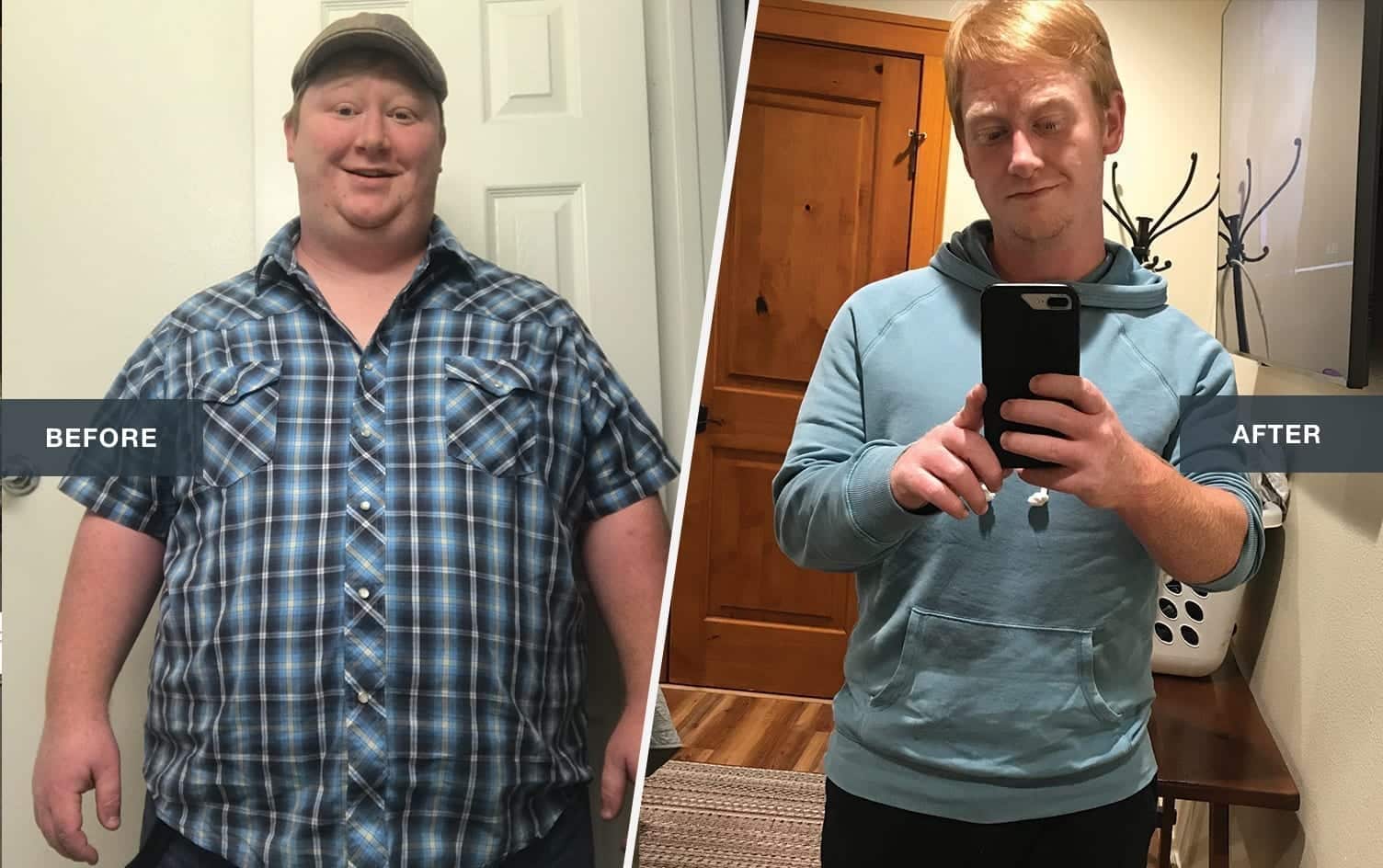As an actor living in Burbank, California, Connor Dugard found it hard to land jobs as an actor. He suspected it was due to his weight, which tipped the scales at nearly 370 pounds in his mid-20s.
With a crippling food addiction that seemed to only worsen as time went on, he decided to make a serious change.
“I wanted to get to 160; that was my goal,” he says. “I wanted to get there with as much time as it took, but also as quickly as possible while still being safe.”
Dugard turned to fasting and set a daily calorie limit to control when and how much he ate daily. At first, it was a 16-hour fasting window followed by a feeding window of eight hours, and once he got used to that routine, he bumped up to a 20-hour fasting period with a four-hour feeding window.
“I kept my calorie intake under 2,000 at the beginning, and sometimes between 1,400 and 2,000 depending on if it was an easier day or harder day,” says Dugard.
Interestingly, he didn’t overhaul his diet as much as you’d expect with a 200-pound transformation. As long as he stayed under his calorie cap, anything was fair game — In-N-Out cheeseburgers and ice cream included. But because his feeding window was limited, he turned toward healthier foods that would better sustain his energy levels throughout the day. This meant experimenting with new recipes heavy on vegetables, leafy greens and whole grains.
“I’m making a lot more vegetarian and vegan stuff, lots of green-based meals, and I never would have thought I’d like that — especially broccoli and cauliflower,” says Dugard. “Once I found those veggies, it was easy to mix around and make different dishes.“
The changes to his diet weren’t easy though — the withdrawals were intense. He says the first week without fast food felt similar to his first week without smoking cigarettes, which he had quit in September 2018.
At the same time he started fasting, Dugard also began walking every day. He took it slow with just a mile at a time, working his way up to a 5K loop around a lake close to his house.
“I literally didn’t do any exercising for years, and I wish I had started sooner because my knees and joints were killing me,” he says. “After a month of walking even just a mile every day, and even though I didn’t have much progress weight-wise, my whole body felt infinitely better.”
His weight-loss journey wasn’t without its challenges, but keeping things in perspective helped Dugard stay motivated. He’d find himself obsessed with the number on the scale and sometimes frustrated by his lack of progress; eventually, he’d reframe his situation as something more positive.
“I’d forget to focus on what I was able to do in the moment that I couldn’t do a few weeks ago, instead of what was on the scale. You just keep going and eventually you get back on track, but it was definitely a mind game.”
After trying out a few different health and fitness apps, Connor discovered MyFitnessPal and started logging his meals and exercise to help keep his target goal in focus.
“Especially as I got closer to my goal, I’d also use MyFitnessPal to check macros and mess around with different percentages and tailor my goals to me,” he says. “It really helped seeing how many calories I took in on any given day next to how much I exercised, and it felt really intuitive.”
From day 1, Dugard never doubted he’d reach his goal weight of 160 pounds. With a journey lasting more than a year, he’s now focusing on maintaining his weight and mixing in more running and strength-building exercises into his daily routine.
“It was just a matter of tenacity, just being stubborn enough. But I didn’t hate myself, I didn’t hate the person I was. I wasn’t ashamed of myself, but I wanted to feel better and simply moving around becoming more aware of foods is a good way to feel better,” he says. “Now it’s a day-by-day inventory, and I’m now able to ask myself what I want to do.”




